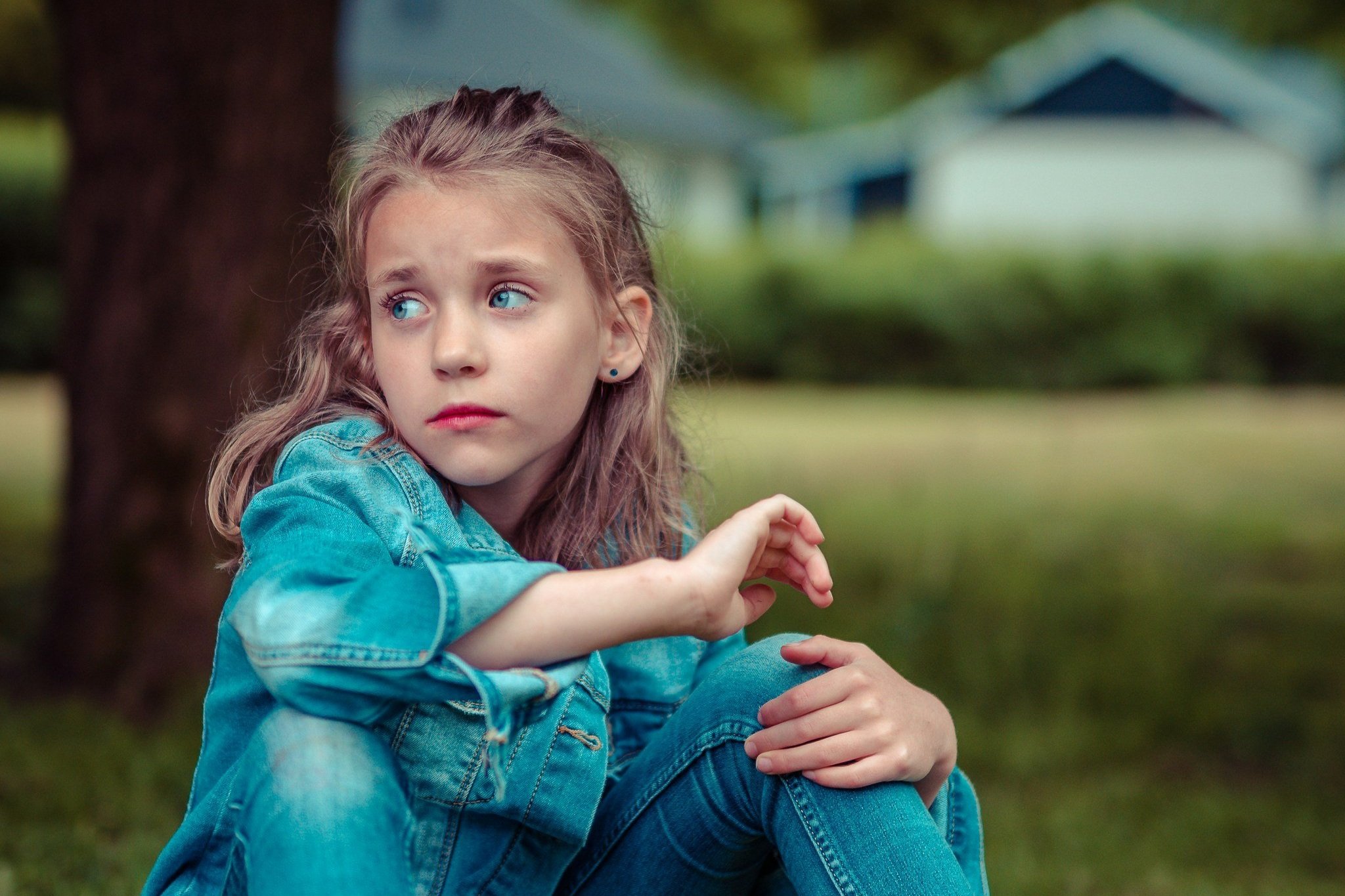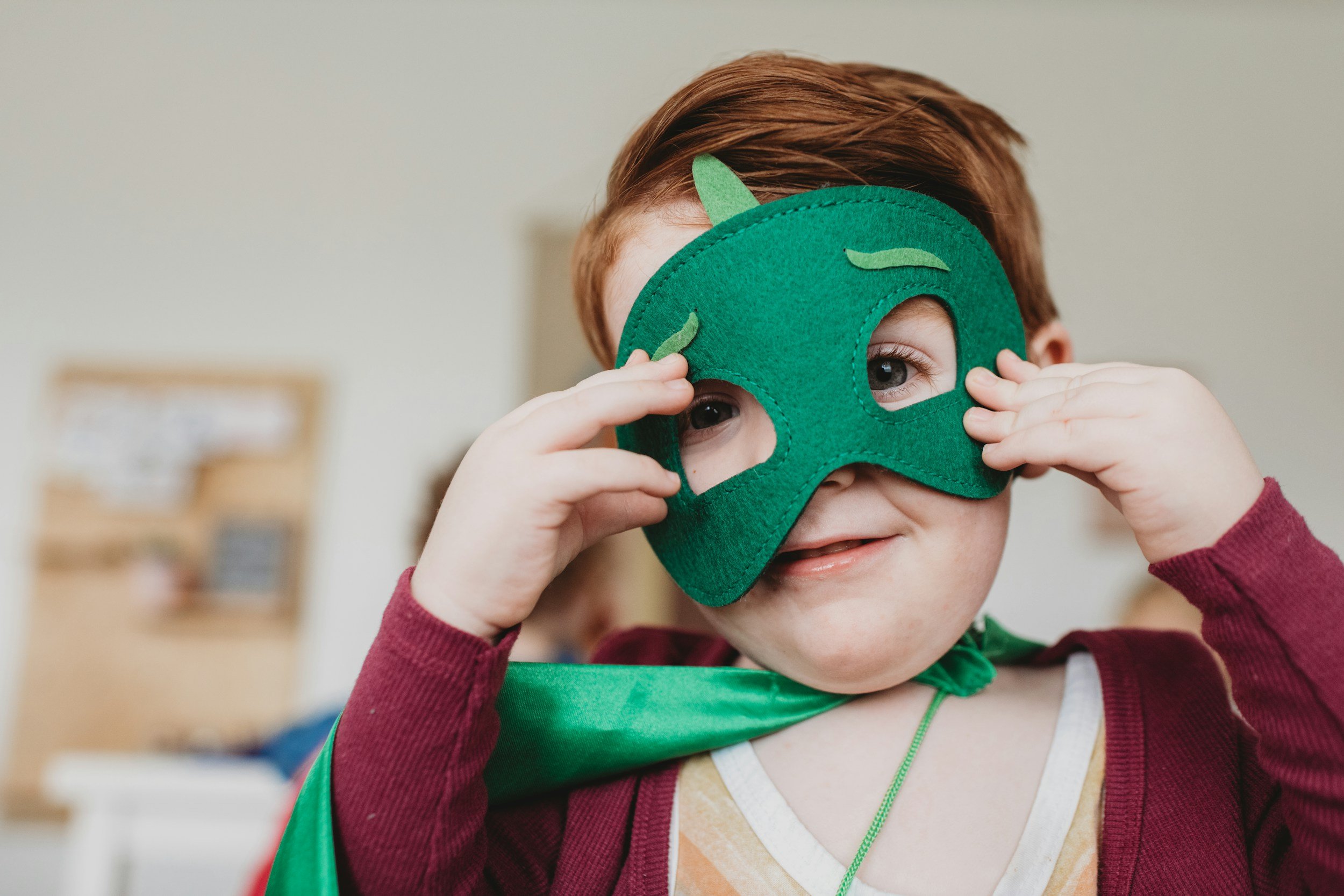
Teen Blues or Something More? Identifying and Tackling Teenage Depression
Adolescence is filled with emotional ups and downs, but how can parents distinguish between typical mood swings and clinical depression? At Reach Counseling, we understand that teen mental health is complex. This guide breaks down the differences, highlights key warning signs, and provides expert-backed strategies for supporting your teen. Early recognition and intervention can make all the difference—let’s navigate this together.

The Silent Struggles of ‘Good Kids’: Recognizing Hidden Anxiety and Depression
Some children appear to have everything under control, excelling academically, following the rules, and rarely causing trouble. However, beneath the surface, they may be silently struggling with anxiety, self-doubt, or depression. Learn how to recognize the hidden signs of distress in high-achieving kids and ways to support them in opening up.

Helping Kids Navigate Grief: What Every Parent Should Know
Grief looks different for every child, depending on their age, emotional development, and personal experience with loss. At Reach Counseling, we help parents understand how children process grief—from preschoolers to teens—and offer age-appropriate ways to talk about death, separation, and loss. In this guide, you’ll find research-backed strategies, creative activities to help kids express emotions, and local grief support groups in the Fort Worth area. Whether your child is struggling with the loss of a loved one, a pet, or a major life change, you are not alone. 💛

The Parent-Therapist Team: How We Work Together to Support Your Child
At Reach Counseling, we believe that therapy is most effective when parents and therapists work as a team. While therapy provides a space for children and teens to heal, lasting progress happens when support continues at home. This guide explores how parent involvement enhances therapy, what to expect in sessions, and practical ways to reinforce your child’s emotional growth.

Why Choose a Child & Teen Therapist? How Specialized Counseling Makes a Difference
Not all therapy looks the same—especially when it comes to supporting kids and teens. Young minds experience and process emotions in unique ways, which is why specialized child and teen therapy is so important. At Reach Counseling, we use developmentally appropriate approaches like play therapy, expressive arts, and teen-focused counseling to help young people express themselves, build resilience, and develop confidence. Learn how working with a therapist trained in child and adolescent mental health can lead to stronger, lasting outcomes for the children and teens in your life.

8 Common Misconceptions About Play Therapy
When people hear “play therapy,” they often picture children building LEGO towers or playing with dolls while a therapist simply observes. It sounds fun, but is it real therapy? Absolutely. Play therapy is an evidence-based approach that helps children process emotions, develop coping skills, and navigate life’s challenges in a way that makes sense to them. From reducing anxiety to fostering emotional expression, play therapy is so much more than just “playtime.” Let’s debunk some common myths and uncover the real power behind this transformative approach.

Why Play Heals: The Science Behind Play Therapy
Discover how play therapy activates key areas of a child’s brain to promote emotional healing, improve self-regulation, and support growth. Learn why play is more than just fun—it’s transformative!

How Group Therapy Helps Children and Teens Thrive
Learn how group therapy can empower your child to navigate challenges, build essential skills, and foster emotional growth. In a supportive and therapist-led setting, group therapy helps young people connect with peers, practice social skills, and develop strategies to thrive both personally and in their relationships. This approach creates a space where children and teens can gain confidence, find belonging, and work toward lasting emotional well-being.

How to Help Your Child At School: Navigating Resources, 504 Plans, and IEPs
Learn how to advocate for your child at school by understanding the resources available, including 504 Plans and IEPs. This guide walks parents through communicating with teachers, requesting evaluations, and securing the support their child needs to thrive academically and emotionally.

How to Help Your Child Calm Down: Effective Behavior and Coping Strategies
Discover effective strategies to help your child calm down and manage big emotions. Learn coping tools, co-regulation techniques, and tips to support your child’s behavior through stressful moments.

Helping Your ADHD Child: Strategies for Thriving at Home and School
As a child and teen therapist—and a parent of an ADHD kiddo—I know firsthand how challenging it can be to help kids "do the things," whether that’s following routines, getting out the door on time, or managing emotions. Parenting a child with ADHD comes with unique hurdles, especially when big emotions show up unexpectedly. I recently hosted a parent workshop where we talked about these very challenges and shared strategies for creating structure while still being flexible. In this blog post, I want to share some of the key takeaways from that workshop to help make routines work better for your family and support your child’s mental health.

7 Ways Routines Improve Your Child’s Mental Health
As a therapist who uses play therapy, I’ve seen firsthand how powerful routines can be for supporting children’s mental health. In a world that can sometimes feel unpredictable and overwhelming, routines offer children a sense of security, stability, and control. In this blog, I’ll explore how establishing routines can benefit your child’s emotional well-being and mental health.

Helping Your Anxious Child: Tools and Tips for Parents
Anxiety in children is more common than you might think. It shows up in all sorts of ways—difficulty sleeping, trouble focusing, irritability, or even physical symptoms like stomachaches or headaches. As a therapist specializing in child and teen anxiety, I see these struggles every day, and as a mom, I know firsthand how confusing it can feel when your child is overwhelmed. Here are some tips and tools to help your anxious child.

The Power of Play Therapy: A Deep Dive
In this blog post, we will dive into the magical world of play therapy and explore the many benefits and how it can help your child experience healing, growth, and transformation. Play therapy is a form of therapy that uses the natural medium of play to aid children in processing experiences, expressing their emotions, and discovering coping skills in a safe and nurturing environment.

Understanding ADHD in Children: A Guide for Parents
In this guide, we'll explore practical tips and strategies tailored for parents embracing the ADHD journey with their children. At Reach Counseling, we're committed to partnering with children and parents to embrace their unique neurodiversity. We firmly believe in uncovering and nurturing each child's inherent strengths and qualities while empowering them to understand their brain and neurodivergent identity.

The Power of Co-Regulation: A Guide for Parents in Nurturing Emotional Well-being (Plus a free resource!)
Do you have a child that experiences intense, stressful meltdowns? Sometimes, it feels like there was no trigger, no warning, and nothing that can console them in that moment. We’ve been there, and here at Reach Counseling, we are committed to helping you and your child navigate these big emotions. We are here to walk you through emotional co-regulation: what it means, how to do it, and how to ask for support!

Sandtray in Therapy: How does it help kids and teens with their mental health?
Sandtray is an expressive art tool that is typically used by therapists that work with children and teenagers, but it can be helpful for all ages! The client is asked to create their world in the tray, and they do so by choosing figurines and arranging them in a way that is meaningful to them. The client is able to process deep intrapsychic topics in a way that traditional talk therapy can’t, as the tray or ‘scene’ that they create often tells a story in itself. The client is no longer reliant on their words to tell a story, and this can lead to deeper and more meaningful healing.

Are video games bad?
Are video games bad? How do video games affect a child’s brain? A child therapist provides a look at the science of how your child’s brain is affected by video games and ways to help navigate a healthy balance and increase emotional regulation after your child plays video games.

Why Play Therapy?
The bottom line is play therapy helps kids: communicate better, fosters emotional wellness, builds on their strengths, and enhances their social relationships.
